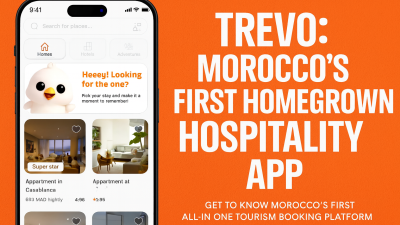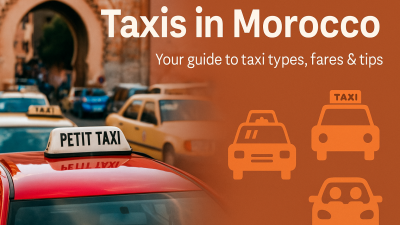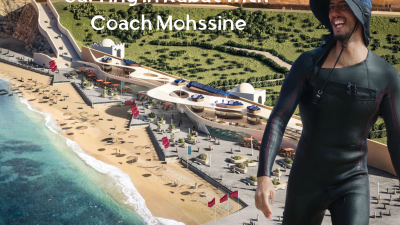Thinking about leaving your country and starting fresh in Morocco? Whether you’re drawn by the cost of living, the sun-soaked culture, or a slower pace of life, Morocco offers a safe, welcoming, and affordable destination to relocate to in 2025.
This complete guide walks you through how to move to Morocco — covering visas, housing, budgeting, culture, and healthcare — with real-life examples and up-to-date advice.
1. Do You Need a Visa to Move to Morocco?
Here’s some good news to start: Citizens of many countries can enter Morocco without a visa and stay for up to 90 days.
| Visa Type | Purpose | Duration |
|---|---|---|
| Tourist Entry | Short-term visit | 90 days (visa-free) |
| Residency Permit | Long-term stay | 1 year (renewable) |
| Work/Student Visa | Work or study | Varies by sponsor |
If you’re planning to live in Morocco full-time, you’ll need to apply for a Carte de Séjour (residency permit) before your 90 days are up.
2. Where to Live: Best Cities for Expats
There’s no one-size-fits-all answer, but here are top picks based on different lifestyles:
| City | Vibe | Why It’s a Great Fit |
| Marrakech | Cultural, energetic | Cafés, coworking, expat community |
| Agadir | Relaxed, coastal | Surf, safety, sunshine |
| Casablanca | Modern, business hub | Urban life, international schools |
| Rabat | Clean, diplomatic | Calm, organized, parks and embassies |
Tip: Start with Airbnb or Booking for your first month while apartment hunting.
3. Budget Breakdown: Cost of Living in Morocco
You don’t need a big salary to live well in Morocco. Here’s a general breakdown:
| Expense | Morocco (Monthly) |
| Rent (1BR apartment) | $250 – $500 |
| Groceries | $150 – $250 |
| Utilities + Wi-Fi | $40 – $60 |
| Private Clinic Visit | $25 – $40 |
Many expats live comfortably in Morocco on $1,000 to $1,500/month, depending on their city and lifestyle.
4. Health and Insurance Options
Healthcare in Morocco is affordable and accessible.
- Use private clinics for faster service
- Appointments typically cost $20–$40
- Consider expat insurance (e.g., SafetyWing, Cigna, Allianz)
- Local insurance is optional, not mandatory
5. Setting Up Your Finances
Getting paid or managing money internationally? Here’s what to know:
- Open a Moroccan bank account after receiving your residency card
- Recommended banks: CIH, Attijariwafa, BMCE
- Use Wise or Revolut to send money from your home currency to MAD
- International credit/debit cards work at most ATMs
6. Stay Connected: SIM, Wi-Fi, Coworking
Morocco has surprisingly good internet infrastructure in major cities.
- Buy a prepaid SIM card at the airport or local shop (INWI, Maroc Telecom, Orange)
- 10 GB data costs ~$5
- Home Wi-Fi speed: 20–100 Mbps
- Coworking spots in Marrakech, Casablanca, Rabat, and Agadir
7. Language & Cultural Basics for Expats
Here’s the truth: Morocco is multilingual, and you don’t need to be fluent to get by.
| Language | Where It’s Used |
| Darija Arabic | Daily life, markets, taxis |
| French | Healthcare, government, banking |
| Amazigh | Rural and southern areas |
| English | Tourist zones, youth, online business |
Tip: Learn 20–30 basic Darija phrases — it goes a long way. Use apps like Google Translate, Duolingo, or YouTube channels like Darija Academy.
8. How to Apply for Residency (Carte de Séjour)
Planning to stay longer than 90 days? You’ll need to apply at the local police station (Bureau des Étrangers).
Required Documents:
- Passport + entry stamp copy
- Rental contract (notarized)
- Bank statement or proof of income
- Medical certificate from local doctor
- Tax form (from nearby tax office)
- 4–6 passport photos
- 100 MAD tax stamp
Processing takes 2–8 weeks, and your permit is valid for 1 year, renewable annually.
9. Travel & Entry Tips
Flights arrive daily from Europe, North America, the Gulf, and beyond. Most international arrivals land in Casablanca, but also Rabat, Marrakech, and Agadir.
What to bring:
- Passport (valid 6+ months)
- Proof of return flight (recommended)
- Printed booking of your first Airbnb/hotel
No visa is needed for 90 days — just show your passport at the airport for a free entry stamp.
Final Word: Is Morocco Right for You?
If you’re looking to slow down, stretch your income, and experience a new culture, Morocco is an ideal destination.
With lower living costs, friendly locals, reliable internet, and simple visa rules, you can set up your new life without jumping through endless hoops.
Just start small, stay flexible, and keep an open mind — and Morocco will take care of the rest.
FAQs: Moving to Morocco
Q1: Do I need a visa to live in Morocco?
No, not for stays under 90 days. For longer stays, you must apply for a residency permit.
Q2: How much money do I need per month in Morocco?
Most expats live well on $1,000 to $1,500/month.
Q3: Can I find work in Morocco?
Most expats work remotely. Local job opportunities exist in tourism, education, and business services.
Q4: Is Morocco safe for foreigners?
Yes. Morocco is generally safe, especially in urban areas.
Q5: Is French or Arabic required?
It helps, but many people speak some English in tourist and expat zones. Learn basic Darija for daily use.
Q6: Can I drive in Morocco with a foreign license?
Yes — but you’ll need an International Driving Permit (IDP) alongside your home country’s license.


